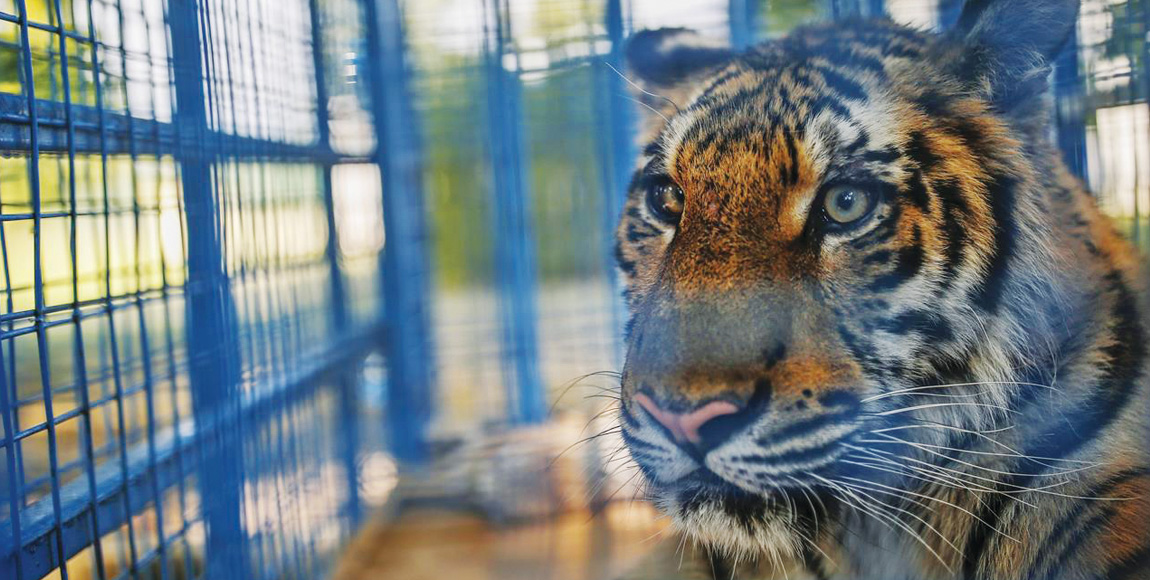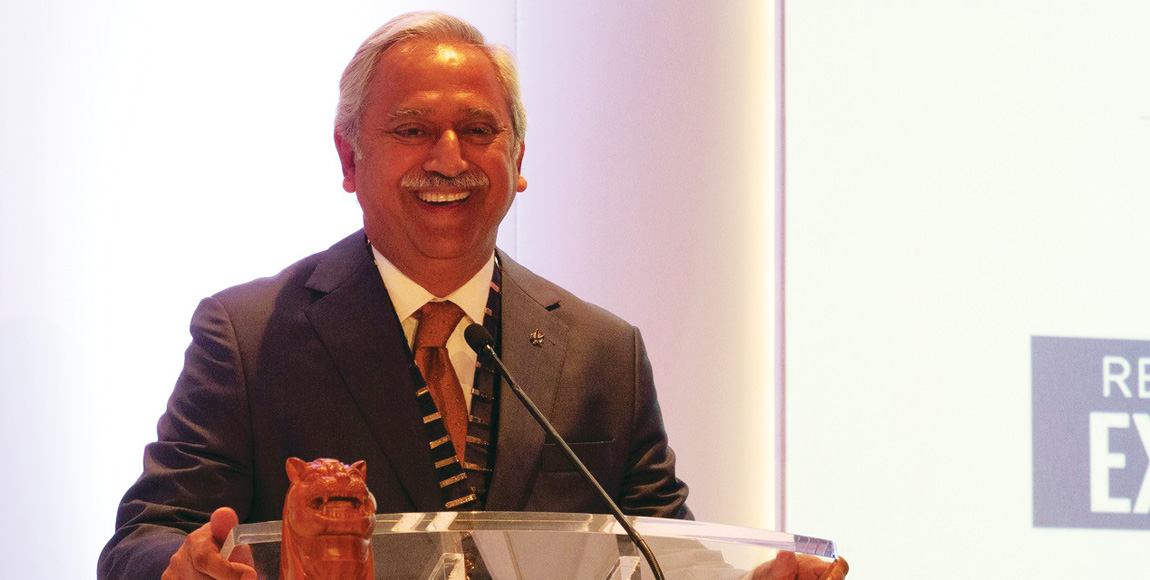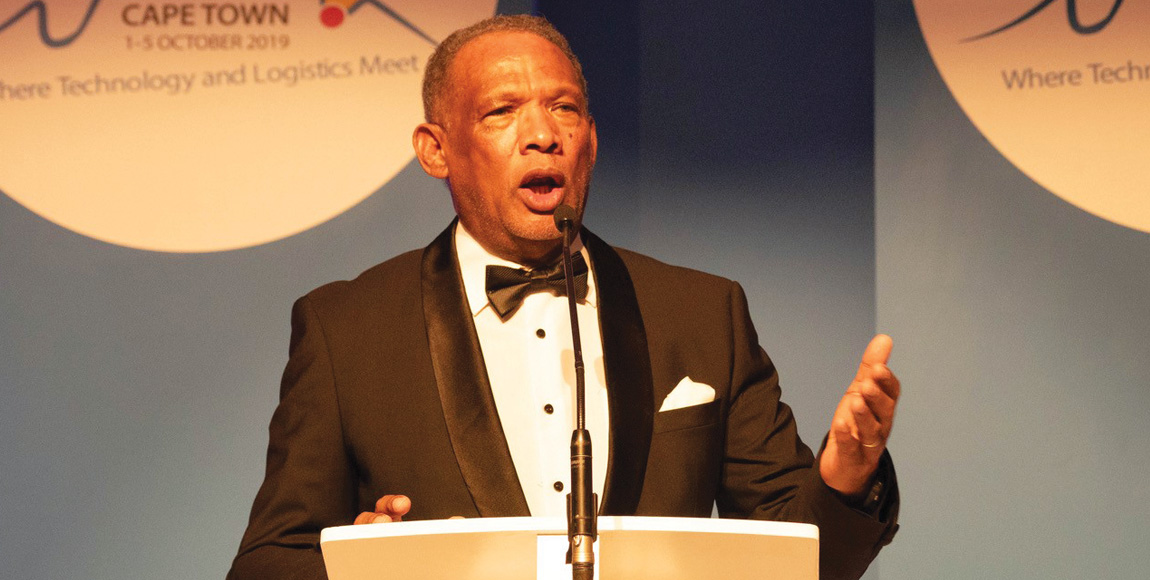FIATA wraps up successful World Congress

Bribery, corruption and the illegal trafficking of wildlife were among the topics discussed
World experts representing the logistics and freight forwarding industry recently concluded their annual international convention in Cape Town. The five-day International Federation of Freight Forwarders Associations (FIATA) World Congress 2019 saw a full house of members gathered in the city’s International Convention Centre to discuss the challenges and issues facing the industry.
Established in 1926, with its headquarters in Switzerland, FIATA is the world’s largest transport and logistics organisation. It represents about 40 000 forwarding and logistics companies, which employ about four-million people in 150 countries.
The Congress was opened by FIATA’s outgoing president, Babar Badat, who said the event – which was co-hosted by the South African Association of Freight Forwarders (SAAFF) – would be used as a platform to reset the organisation to ensure that it maintained a high level of relevancy for its members in a rapidly changing world of logistics.
Badat said FIATA was working hard to ensure that the industry and its various elements became more attractive to new entrants, especially young people. To this end, a special day was set aside at the congress for the sole purpose of focusing on the views of newcomers to the industry.
Basil Pietersen, chairman of SAAFF, was nominated unopposed to succeed Badat as FIATA’s president. He will preside over next year’s World Congress, which will be hosted in Busan, South Korea.
In a keynote address, Edward Kieswetter, head of South Africa’s Revenue Service (SARS), encouraged the country’s freight forwarding industry to collaborate with revenue collection agencies such as SARS to ultimately achieve economic growth and reduce the high levels of poverty in the country. “SARS remains committed to serve this higher purpose, and we invite all stakeholders to join us in this quest,” Kieswetter told delegates.

In a presentation entitled The Future of Global Logistics and Supply Chain: Drones and Air Mobility, Professor Wesley Harris, from the Massachusetts Institute of Technology (MIT) department of aeronautics, said the use of drones offered opportunities for change and progress within the logistics sector.
While he acknowledged that the technology also had its challenges, he noted that, if properly instrumented, the opportunities provided by drones were abundant and included speedy collection of data at significantly reduced cost. “In this day and age, you need high-quality and high-volume data in order to compete in the industry. In this regard, FIATA needs to become a mechanism for learning and sharing expertise,” he said.
The Association’s acting director general, Stephen Morris, said it would draw on the outcomes of various panel discussions and presentations delivered at the Congress to put key issues in an international context aimed at further developing and growing the industry.
Acknowleging that it had a significant role to play in helping to combat the illegal global trade in wildlife, FIATA signed a memorandum of understanding at the congress with specialist environmental organisation TRAFFIC to advance awareness and capacity-building efforts among its members to prevent the trafficking of fauna and flora.
The organisation announced that it had developed in partnership with TRAFFIC – with support from the United States Agency for International Development (USAID) through the Wildlife Trafficking Response Assessment and Priority Setting (Wildlife TRAPS) Project – a three-hour digital video course which was available free of charge to members through the FIATA Logistics Academy.
“Freight forwarders have the ability to be game-changers in preventing the exploitation of their businesses by wildlife traffickers. Awareness and training are critical and our new digital course makes it easy for freight forwarders to become part of the solution,” said Issa Baluch, head of FIATA’s Logistics Academy.

Monica Zavagli, representing TRAFFIC, said wildlife trafficking was a global crisis that impacted the integrity of transport supply chains. “We’re thrilled that this new course will empower freight forwarders around the world to easily and freely access critical information on the prevention of illegal wildlife trade,” she said.
According to Zavagli, illegal trafficking of wildlife represented the world’s fourth largest black market and impacted more than 7 000 species of animals and plants. “Wildlife trafficking pushes species towards extinction, robs countries of their natural resources, and impacts local revenues,” she said. “These crimes fuel corruption and enrich criminal organisations, too.”
On the subject of corruption and bribery, FIATA released a best-practices paper aimed at addressing the challenges in international freight forwarding and logistics. The paper provides practitioners with advice regarding internal control measures effective in the prevention of bribery, and suggests cooperative measures with other stakeholders to prevent it.
According to information released at the congress, much of the world’s economy remained heavily burdened by corruption. “As a sector deeply involved in cross-border trade and frequently interacting with public officials, the international logistics and freight forwarding industry has a relatively high risk of exposure to corruption or bribery,” said a statement.
Richard Gluck, chair of FIATA’s advisory body on legal matters, said member companies had requested a guide to combat the scourge. “This best-practices paper, developed with support from FIATA’s Customs Affairs Institute, emphasises the significance of establishing and implementing a systematic anti-bribery policy in individual enterprises, with a strong leadership commitment against bribery behaviour.
“It recommends adoption of clear rules on sensitive issues like gift-giving, facilitation payments and employment of third-party service providers. Recommended processes to deal with bribery solicitations from public officials are also included to help members in such situations.”
In his comments, Badat said fighting against corruption and bribery was critical to creating a level playing field for the logistics and freight forwarding industry, and to lower costs of trade for the supply chain. “No one can win this fight on their own. FIATA will continue to work with all stakeholders and strive for a better business environment for the industry,” he said.
Published by
Focus on Transport
focusmagsa




